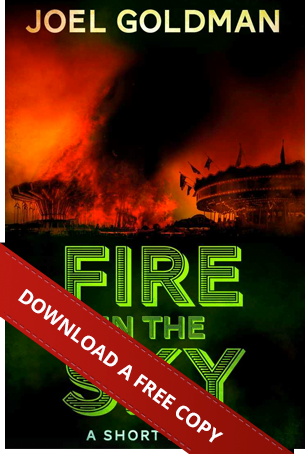 Do you see yourself as a writer – a novel writer destined to become the next John Grisham or Stephanie Meyer? Maybe Lee Child or the up and coming Veronica Roth are more your style. Regardless of the writers you admire, you’ve got a novel in you that just has to get out. You keep starting and stopping. Perhaps you’re so close to finishing that first personal masterpiece, you can feel it in your bones, but something – some mental block – holds you back. I’m here to tell you that you can do it as well as offer some advice about how to finally get that your novel on the page – in its entirety.
Do you see yourself as a writer – a novel writer destined to become the next John Grisham or Stephanie Meyer? Maybe Lee Child or the up and coming Veronica Roth are more your style. Regardless of the writers you admire, you’ve got a novel in you that just has to get out. You keep starting and stopping. Perhaps you’re so close to finishing that first personal masterpiece, you can feel it in your bones, but something – some mental block – holds you back. I’m here to tell you that you can do it as well as offer some advice about how to finally get that your novel on the page – in its entirety.
Who Are You to Think You Can Write a Novel?
When I started writing back in 1992, I wondered what in the Hell made me think I could write a crime novel – or any novel for that matter. To me, that was quite a conceit. So, I went out to my local Barnes & Noble store and prowled around in the books on writing. With so many to choose from, I had no way of knowing whether any of them were worth a damn. The only fiction I’d written up to that point was the bills I sent to my clients.
Fortunately, I stumbled upon Brenda Ueland’s book, If You Want to Write. In the first two pages of her book, Ueland had me convinced I could write a novel, emphatically insisting we are all original and that we all have something valid to say. That’s all well and good, but it didn’t mean I could actually write a book or that I could land an agent. And even if I did get an agent to take me on, it didn’t mean he or she could get the work published. All it really meant was that I wasn’t crazy, arrogant, or conceited to think I could write a novel – and that, my friend, was a big deal.
If you’re having trouble believing in yourself and your ability to actually write a novel, I encourage you to get Ueland’s book and read it. It takes time to recognize inspiration, but it will come. You simply have to believe it and look for it within yourself.
“Inspiration does not come like a bolt, nor is it kinetic energy striving, but it comes to us slowly and quietly and all the time.” ~Brenda Ueland
Everyone Has A Story To Tell
Mark Twain famously quipped, “Write what you know.” Sound advice on the surface, right? But, what if what you feel that what you know doesn’t seem all that interesting or exotic to others? Maybe your high school job at the local pet store or your affection for stamp collecting lack the punch to hold a reader’s interest from start to finish. I’m fortunate that my former career as a trial attorney provides endless material. But, don’t get discouraged; you know more than you think…much more.
While Twain’s remark appears straightforward, I believe that it just may be the most misunderstood piece of writing advice in circulation. Likely Twain knew that when he said it; the lesson operates on many levels. As humans, we know so much more than the material workaday lives that we experience. Even if you feel like the most interesting thing that you’ve written all day is your grocery list, there’s a story in there somewhere.
Write More Than What You Know
We all know about emotional and physical pain — sorrow, fear, humiliation, shame, and the list goes on ad infinitum. All of these emotional experiences make up what you know. Maybe you’ve never summited the Himalayas, but you’ve experienced triumph in some shape or size even if it’s just victory at potato sack race at a school picnic.
 Don’t forget that your emotional knowledge is as important as your experiential knowledge. Let these experiences liberate your imagination, not restrict it. Remember how awesome you felt when you nailed the final word to win the regional spelling bee? Or, maybe you won the intramural school thespian competition for your role in Macbeth. Revisit that sweet feeling and milk it for all it’s worth. That you know.
Don’t forget that your emotional knowledge is as important as your experiential knowledge. Let these experiences liberate your imagination, not restrict it. Remember how awesome you felt when you nailed the final word to win the regional spelling bee? Or, maybe you won the intramural school thespian competition for your role in Macbeth. Revisit that sweet feeling and milk it for all it’s worth. That you know.
So, of course, an aspiring writer should take inspiration wherever he or she can find it. What is unfortunate—and what’s prone to happen when writers set out to simply write what they know—is the writer tends to think of an imagined story as less authentic or less worthy than a true story. When imagined stories work, it’s because the emotional world they portray is true—whether they are set in Venice during the Renaissance, or in a galaxy far, far away.
Get Over It and Get Writing
So once you get past the mental block of thinking you’re unworthy or incapable of actually writing and publishing a novel, then what? Now you’ve got to actually get moving and start writing. Everyday. You might want to take a peek at Malcolm Gladwell’s book, Outliers. In it, he explains how it takes a person 10,000 hours to become really good at a specialized skill or art. What does this mean for you? It means you’ve got to “get over yourself” and write on your novel every chance you get.
How do you do that and stay focused and motivated? Look for my next post on this topic. I’ll include concrete solutions to common writer productivity problems and motivational issues. You won’t want to miss it because I’ve got so much to share with you: resources, tools, sound advice, and more. After we’ve gone through the series, I’ll invite you to share small pieces of your work with me as well. You’ve got to get the ball rolling, but it’s your support group – your personal community of friends and family – that will actually move you to get the job done.
Take a hint from Nike and Just Do It!
Photo credits: eastcountrymagazine [dot] org, tewahiorapiha [dot] blogspot











